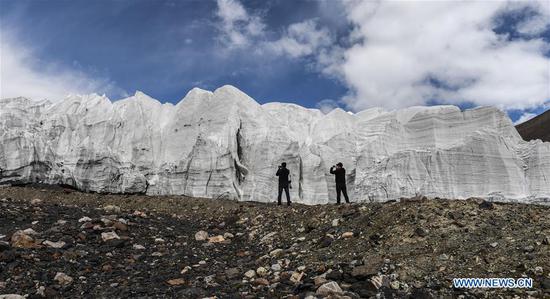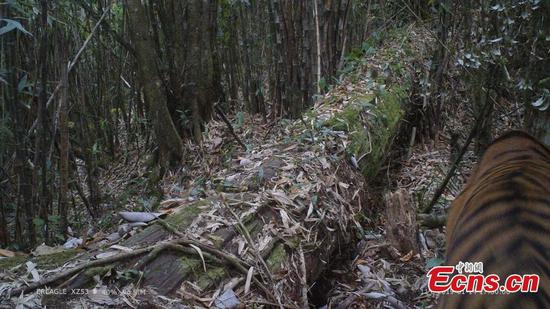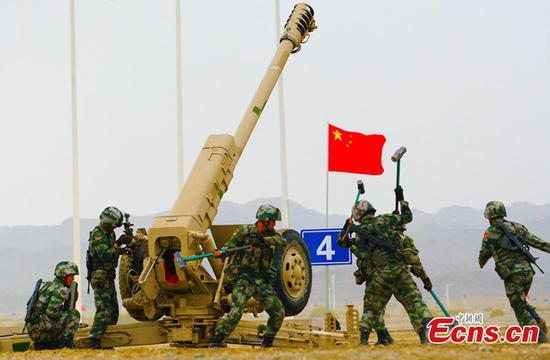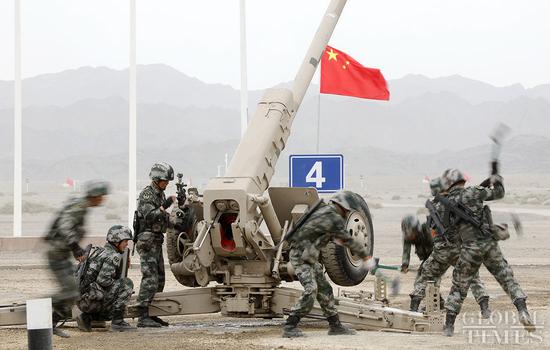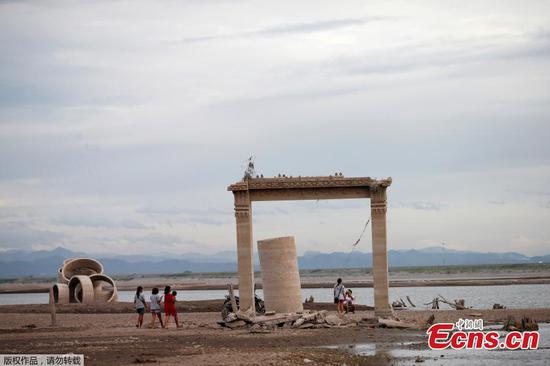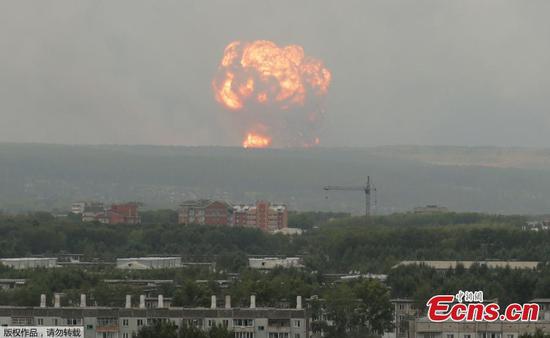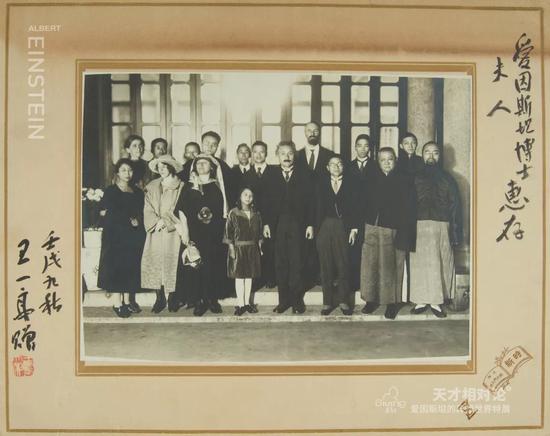China urged India on Tuesday to exercise caution in its words and deeds and avoid making moves that could further complicate the boundary situation.
"Recently, the Indian side has continued to undermine China's territorial sovereignty by unilaterally changing its domestic laws. China cannot accept this practice, and it will not have any efficacy," Foreign Ministry spokeswoman Hua Chunying said in a statement released on the ministry's website.
Hua's remarks were in response to New Delhi's decision to announce Ladakh, which includes part of the western section of the China-India border, as union territory on Monday, as a result of the South Asian country's recent decision to revoke India-controlled Kashmir's special status.
Hua said China always opposes India's inclusion of Chinese territory in the western section of the boundary under its administrative jurisdiction, and this position "remains firm and consistent and has never changed".
The eastern, central and western sections of the China-India boundary have never been officially demarcated. China and India have been in negotiations to resolve territorial disputes in recent years.
In a separate statement, Hua also expressed China's serious concerns over the current situation in Kashmir, calling on India and Pakistan to exercise restraint, act with caution and avoid taking actions that unilaterally change the status quo and exacerbate tensions.
Recently, the militaries of India and Pakistan - both of which claim the entire region - have exchanged fire and targeted each other's positions along the Line of Control that divides Kashmir. Tensions in India-controlled Kashmir increased last week after India sent additional paramilitary troops to the region.
"China's position on the Kashmir issue is clear and consistent. It is an issue left over from the past between India and Pakistan, and this is also the consensus of the international community," Hua said, urging both sides to peacefully settle this issue through talks and consultations and safeguard peace and stability of this region.










